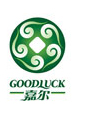How Are Sunflower Seeds Made?

Sunflower seeds have become a popular snack food. The sunflower plant is an annual herb with large yellow flowers and broad leaves that can grow 3-15 feet (0.91-4.6 m) tall. The seeds are harvested about 120 days after the sunflower has grown, and are then dried, roasted, and pickled.
While most sunflower seeds are used for their oil, sunflower seeds are also sold as food products. These products are available in many different flavors. Most are sold salted and in their shell.
The sunflower seeds are four-sided and flat. They are generally a quarter-inch long and an eighth of an inch wide. They have a black seed coat with dark or gray stripes. The hull surrounds a small kernel that is composed of about 20% protein and 30% lipids.
Additionally, they contain a high level of iron and dietary fiber. The high linoleic acid content of the kernel makes it prone to rancidity and thus gives it limited shelf life. The following is the production process of sunflower seeds.
(1) Sunflower seed production begins in early spring when the fields are prepared and the seeds are planted. The seedbeds are tilled and the soil is kept moist. Having adequate moisture content in the soil is the most important planting requirement.
The seeding rate (number of seeds planted per acre) is particularly important for sunflower seeds sold as snack foods because a high seeding rate results in smaller seeds that are less desirable. Roughly 17,000 seeds are planted per acre for snack food sunflower seeds. Row spacing is typically between 20-30 in (50.8-76.2 cm).
It is thought that the best orientation of the plants is in a North-South direction. A common planting method is to use a corn planter fitted with a special sunflower seed plate. The seeds are typically treated with a fungicide prior to planting.
(2) Sunflowers are ready to harvest when the black part of their heads turns brown. To minimize the loss, harvesting is done in a timely manner. Harvesting speed is reduced to prevent dehulling of the seeds.
(3) The seeds are rapidly dried to under 10% moisture content. Growers typically have facilities on their farms to store seeds until they can be transferred to the local grain elevators. From here, the seeds are transported by truck or train to the processing sites.
(4) When the sunflower seeds arrive at the processing plant, they are emptied onto wire screens and shaken to remove dirt and unwanted debris. They are also inspected to ensure they meet previously determined specifications. Factors such as moisture content, appearance, and taste are used to evaluate the shipment. They are next transferred to a large bin and further cleaned.
(5) The seeds are then passed on to sizing screens which separate them by size. These screens have holes that allow smaller-sized seeds to fall through. The largest seeds will be further processed as snack foods. Medium-sized seeds are destined for use in toppings for cookies, salad, or ice cream. The smallest seeds are sold as bird and pet feed.
(6) Snack food sunflower seeds are transferred through large ovens. Here, they are drily roasted, reducing the moisture level in the seed further. The medium-sized seeds are first sent through de-hulling machines which remove their shells. They are then roasted in oil.
(7) Both types of seeds can be flavored as desired. There are a variety of ways in which this can be accomplished. In one procedure, the warm seeds are transferred out of the roasters and put into a large, rotating container. As they are moved around, they are combined with the flavoring ingredients. Oils are sometimes used to make the ingredients stick better.
To ensure that consistently high-quality products are produced, GOODLUCK inspects sunflower seeds at every step of the production process. If you have a need for this, you can search for related products on our website for a corresponding understanding.
GOODLUCK is an experienced supplier of agricultural products. We have a complete management system and strict quality inspection department to fully control the production links of the products. Our high-quality products and thoughtful one-stop service have won the unanimous praise and trust of many customers. Our products have passed multiple safety and health certifications and are distributed in many countries and regions. If you are interested in our sunflower seeds, please contact us immediately!


